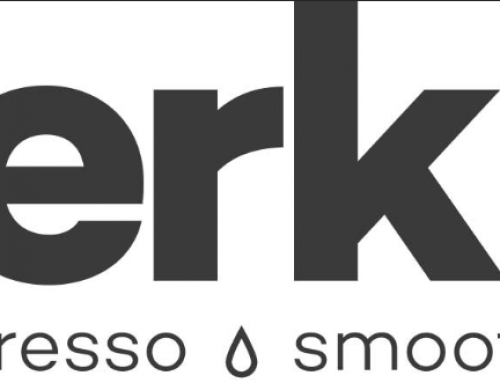Hello. We are Hyperion Executive Search and we’d like you to get to know us better.
Part 1- Who are Hyperion and why do growing companies partner with us?
Part 2 – Why truly understanding our client’s story is vital in the search for talent
Part 3 – How do we find hidden talent and build relationships with the best candidates?
So far in our blog series, how Hyperion builds rockstar cleantech teams across the world, we have discussed a variety of topics around understanding our client’s unique story, strategy and culture and how we find and attract the top talent in the industry.
In Part 4 of the blog, I’m going to focus on how we manage the executive search process in the most efficient way to make it a positive experience for both clients and candidates alike.
In essence the executive search process can be structured into 5 stages – and in each of them specific issues need to be addressed to turn it into an enjoyable and stress free experience:
1. Definition of the key priorities for the search
2. Agreement on the specific search strategy for the project
3. Candidate attraction and evaluation
4. Shortlist presentation and client interviews
5. Completion of the assignment
Definition of the key priorities for the search
At the very beginning of a search it is critical to understand the challenges unique to the organization and the specific role. We work closely with our clients to define the skills, personality and expertise that are required for the position. As we see ourselves as true advisors to our clients we do also challenge their assumptions and expectations where appropriate and offer alternative ideas – this can be related to the budgeted salary which isn’t aligned to market conditions or the cultural dynamics within the team.
The outcome of this first stage is a tailored “Opportunity Document” which includes all relevant information on the role and the company (such as a company profile, responsibilities of the role, challenges and opportunities in the role etc). This document is the basis for the search process and helps us define the priorities for defining the search strategy. It also eliminates ambiguity and is the reference point for managing expectations for all stakeholders.
Agreement on the specific search strategy for the project
Based on the findings from the first stage of the process, we develop a target list of most relevant companies where potential candidates with suitable skills and experience could be located. Due to our deep understanding and extensive networks in the cleantech industry we are also able to supplement the target company search with referrals from contacts and partners amd also look at comparable sectors we could focus on if the talent doesn’t exist in the current market.
Since we utilise a multi-pronged search model we will use professional social networks to advertise the role (as and when appropriate). We will also take into account any insights from our network that can help us qualify prospects.
Candidate attraction and evaluation
This might be the most delicate stage of the executive search process. With a detailed understanding of our client and the requirement, we now approach potential passive candidates who might not be looking for a new job. We evaluate their interest in the role drawing on our experience and on our insights about their motivators and career aspirations.
Since we are building rockstar teams this means quite often that the candidates we approach are in a comfortable position with their current company and may need to be “persuaded” to consider a new opportunity. We have the professional and personal experience to build a rapport with these candidates and thus be seen both as true career advisors as well as true ambassadors of our client. The evaluation of the best candidates who are presented to our client is conducted through competency based interviews. Based on the results of these interviews we develop a shortlist of the most suitable and interested candidates.
Shortlist presentation and client interviews
Once the selection process from our side is concluded we present the shortlisted candidates based on detailed written interview assessments which are appraised against the requirements determined in the first stage of the process. At this stage we also assist our clients with additional information on the candidate’s track record and achievements to provide meaningful insights into past performance.
Our role in this stage of the process is also to act as trusted and unbiased communicator between client and candidate. We have seen many situations where a candidate is not sure whether or when he or she can ask some questions – it is sometimes just easier and it feels less awkward if a third party asks a question!
Completion of the assignment
After the client has selected its preferred candidate, we conduct reference checks (if requested by the client). This helps to further assess competencies, strengths and weaknesses as well as to provide an “external view” of the individual.
Whilst the general view is that our job is pretty much done when the client has selected the preferred candidate, the reality is that it´s far from it.
Quite often we are deeply involved in negotiations over compensation and other terms to help finalize the search. Again we act as neutral facilitator and communicate regularly with our client and the candidate during the transition period. This also relates to the candidate`s resignation process where we provide assistance and advice to successfully manage it.
And even once the candidate has started in the new role we are staying close to both candidate and client to ensure a smooth transition and seamless onboarding for the placement.
In essence, managing an executive search process successfully for all involved stakeholders relies on a few key principles:
1. Communicate clearly and timely at all stages of the process
2. Address any concerns or obstacles as soon as they arise – there is nothing worse than leaving a lingering doubt unaddressed to the end of the process – it will come back and bite you!
3. Manage expectations from both client and candidates in a professional, transparent and open manner
We at Hyperion believe that deep sector expertise and experience combined with the thorough, structured methodology described above will lead to excellent results and a stress free experience for both clients and candidates.
Next up is the final chapter of our blog series where our CEO David Hunt will talk about what’s next for Hyperon in 2019 and beyond!


